Standing at the forefront of one of the most significant financial transitions in history, we are helping our clients navigate the unprecedented wealth transfer of an estimated $84 trillion from baby boomers and the silent generation to their descendants over the next two decades. This historic shift presents a unique opportunity to discuss charitable giving as part of our clients’ long-term plans. As our clients retire and shape their legacies, we encourage them to pay close attention to IRAs and other retirement assets as key components of philanthropy.
Qualified Charitable Distributions (QCDs) from traditional IRAs fulfill both philanthropic goals and manage tax burdens. As clients enter retirement and reach age 73—the point at which Required Minimum Distributions (RMDs) become mandatory—these distributions can significantly increase their taxable income. QCDs allow IRA owners aged 70½ or older to transfer up to $108,000 annually (2025 limit) directly to qualified charities—such as charitable funds at the Community Foundation for Northern Virginia, helping to satisfy RMDs while excluding the amount from taxable income. This approach not only reduces income taxes but can also help moderate Medicare premiums and the taxable portion of Social Security benefits, and is available to all eligible taxpayers, regardless of whether they itemize deductions.
But the benefits don’t stop there! Beyond immediate tax benefits, QCDs can play a strategic role in long-term estate planning.
- Tax Efficiency: Traditional IRAs can leave heirs with a substantial tax bill. Beneficiaries of inherited IRAs generally must deplete the account(s) within ten years, with distributions taxed as ordinary income.
- Estate Planning: By directing RMDs to a charity through QCDs, high-net worth clients can gradually reduce the value of their IRAs, thereby reducing their future potential estate tax burden.
- Flexibility: Unlike charitable deductions, QCDs are not subject to income-based percentage limits, making them a versatile tool for those looking to balance philanthropic intent with smart estate management.
- Future Potential: Proposed legislation may soon allow QCDs to be directed to donor-advised funds, further enhancing their utility in comprehensive estate plans.
Incorporating QCDs into a client’s financial strategy not only maximizes the impact of their charitable giving but also minimizes tax exposure for both the donor and their beneficiaries. As advisors, we have a responsibility to ensure our clients are aware of these opportunities and are equipped to make informed decisions.
As a member of the Business Women’s Giving Circle (BWGC) at the Community Foundation for Northern Virginia, I have personal experience working with the Community Foundation. The Community Foundation for Northern Virginia is a wonderful partner in evaluating and implementing charitable strategies, especially in the local area. To learn more about how they can assist you and your clients with charitable giving, reach out to them for more information.
 by Laura Nash, CFP®, Relationship Manager and Vice President of West Financial Services
by Laura Nash, CFP®, Relationship Manager and Vice President of West Financial Services West Financial Services, Inc. (“WFS”) offers investment advisory services and is registered with the U.S. Securities and Exchange Commission (“SEC”). SEC registration does not constitute an endorsement of the firm by the SEC nor does it indicate that the firm has attained a particular level of skill or ability. You should carefully read and review all information provided by WFS, including Form ADV Part 1A, Part 2A brochure and all supplements, and Form CRS.
Certain information contained herein was derived from third party sources, as indicated, and has not been independently verified. While the information presented herein is believed to be reliable, no representation or warranty is made concerning the accuracy of any information presented.
This information is intended to be educational in nature, and not as a recommendation of any particular strategy, approach, or concept. You should not treat these materials as advice in relation to legal, taxation, or investment matters.
The Community Foundation team is happy to help you structure charitable giving tools and plans to achieve your clients’ philanthropic goals—whether through beneficiary designations or any other type of charitable giving vehicle. This email address is being protected from spambots. You need JavaScript enabled to view it.!
The information contained in this article is provided for informational purposes only. It is not intended as legal, accounting, or financial planning advice.


 Questions?
Questions? Questions?
Questions?




